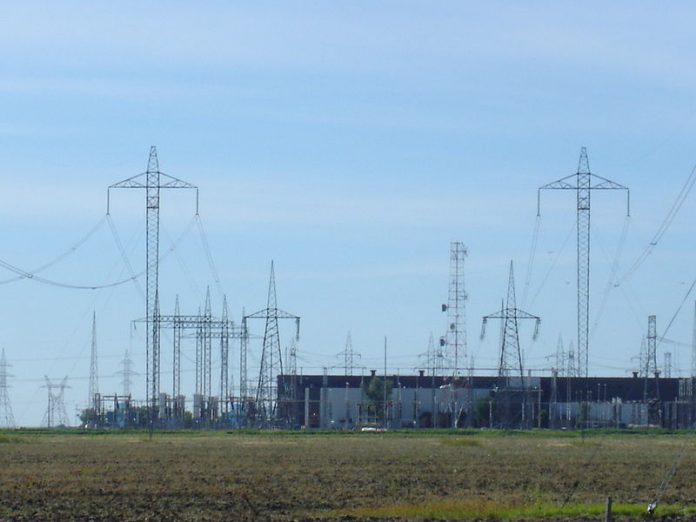A plan being developed by the Senate Democratic caucus would provide incentives for energy producers that meet clean energy goals, while penalizing those that do not meet a proposed 80 percent carbon dioxide emission free electrical generation rate by 2030.
The Clean Energy Standard (CES) plan would require vast changes to the power sector as part of the Biden administration’s stated goal of achieving carbon-free generation by 2035 and meeting Paris climate agreement pledges.
Senate Majority Leader Chuck Schumer announced the CES plan will be included in the Democrats’ $3.5 trillion budget proposal.
Details of the CES, such as how to treat gas and nuclear power plants under the plan, are still being hashed out and will be developed in Senate committees.
Complicated Path to Passage
Democrats are attempting to push the plan forward under the complicated reconciliation process, requiring just a bare majority to be adopted.
Republicans will likely argue that doing so is a violation of the Byrd Rule, which subjects policy changes lacking substantial budgetary impacts to the possibility of a filibuster, requiring a sixty vote majority to move the legislation to a final vote.
To avoid having to overcome a possible Republican filibuster, the CES follows a roadmap crafted by the non-profit Evergreen Action, which was formed by former staffers of Washington Gov. Jay Inslee.
Rather than directly impose a clean energy standard or renewable power mandate, the Evergreen action plan employs incentives, government grants or subsidies, for meeting targets and penalties or fines for missing them.
“Breaking: Clean Electricity Standard is included in the Budget deal,” tweeted Sen. Tina Smith (D-MN), a sponsor of the provision.
“This clean energy standard is about investing in clean energy — it is a budget-based plan so it clearly fits in a budget bill,” Smith told reporters after the outlines of the deal were announced.
Risks to Reliability
Some energy producers are warning a rapid replacement of traditional power sources with intermittent energy sources could pose a risk to the reliability of electrical service to customers, and result in a loss of on-demand emergency power afforded by fossil fuel and nuclear power generation.
Any new legislation needs to allow for continued use of natural gas generation, said Emily Fisher, general counsel with the Edison Electric Institute, in a statement responding to Democrats announcing the CES.
“At minimum, a CES or any other policy tool has to create space in the near term for natural gas generation to continue to play a critical role in integrating more renewable generation,” Fisher’s statement said. “Electric companies and their customers cannot be penalized for keeping the system reliable as we work to achieve our clean energy goals.”
Consumers Will Suffer
Taxpayers and consumers will shoulder the burden of the Democrats’ CES plan, says Craig Rucker, president and co-founder of Committee for a Constructive Tomorrow, which co-published Environment & Climate News.
“Any proposal mandating 80 percent “carbon free” energy is going to be costly to both taxpayers and ratepayers,” Rucker said. “Unless it is met by nuclear power, which the Greens oppose, such a massive transformation will require not only huge investments of government money, but the wide scale development of important technologies, like battery storage, that haven’t proven viable yet.
“It has been pointed out by numerous economists, academics and scientists, including names like Bjorn Lomborg, Michael Shellenberger, and Steve Koonin, that nuclear power is the only energy source that can reasonably move society toward a low carbon future without impacting economic growth,” Rucker said. “Sadly, they have been largely ignored by climate activists.”
Consumers are also likely to also suffer from compromised reliability of energy sources under a plan that is unlikely to meaningfully improve the environment, Rucker also says.
“The deadly blackouts in Texas, coupled with similar grid failures in Australia, Germany, and California, should give lawmakers great pause when it comes to rolling out aggressive quotas that mandate renewable energy use,” said Rucker. “It is sad to see utility boards being strong-armed by federal regulators to achieve political ends, especially when it will only serve to drive up consumer costs and do nothing to help the environment.
“Carbon dioxide is not a pollutant, but even if it were, increasing emissions from developing nations will eclipse any dramatic and costly efforts undertaken by the United States to reduce them,” Rucker said.
Kevin Stone (kevin.s.stone@gmail.com) writes from Arlington, Texas.



























Basically, we don’t have to worry about Russian, Chinese or Iranian cyber “hackers” disrupting our electric grid. By mindlessly mandating increasing portions of unreliable intermittent generating sources, we will continue to de-stabilize and (eventually) COLLAPSE our electric grid ourselves. Like the ongoing meltdown in Afghanistan, our adversaries could NOT be more pleased with our decisions…